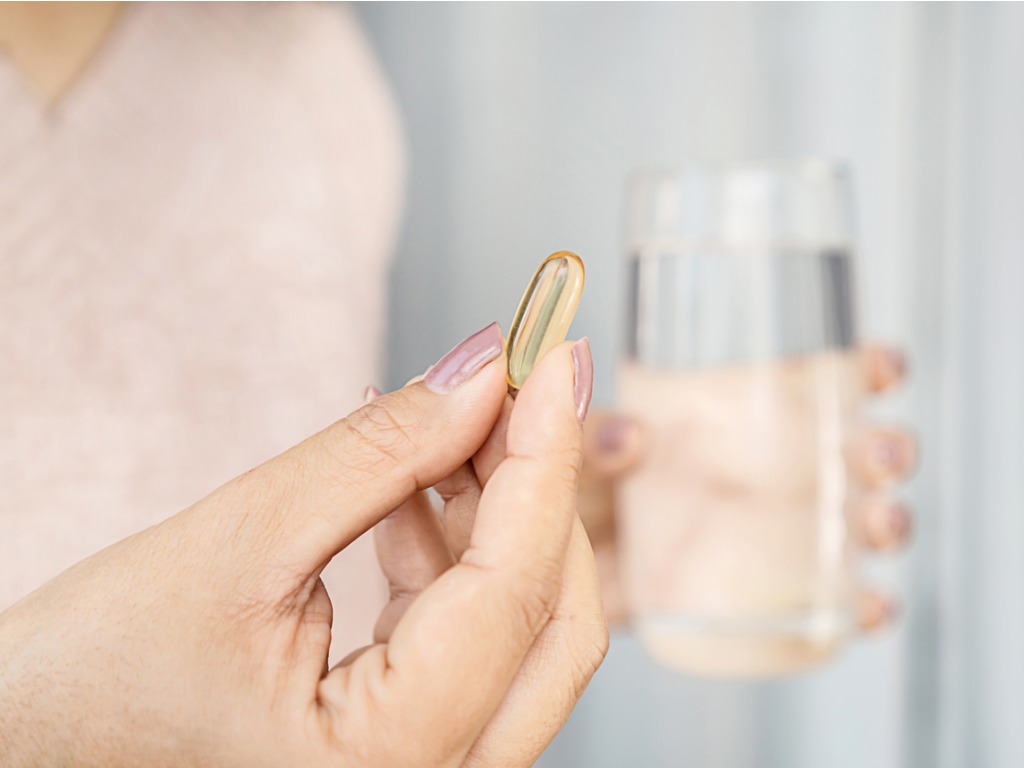Are Benzonatate Capsules Poisonous?

The Bottom Line
Benzonatate is an anesthetic drug and cough suppressant. When benzonatate capsules are swallowed, the medication acts directly on the lungs to reduce coughing. Benzonatate is only approved for use in individuals 10 years of age and older. Younger children who take benzonatate may experience serious toxicity or even death.

What is benzonatate used for?
Benzonatate is an anesthetic drug that is approved by the United States Food and Drug Administration (FDA) for use as a cough suppressant. Although benzonatate has been available as a prescription cough suppressant in the United States since the 1950’s, use of the drug has become more common in recent years. From 2003 to 2018, the amount of benzonatate prescribed or administered in both outpatient and Emergency Department settings increased substantially.
How does benzonatate work?
Benzonatate is marketed in liquid-filled capsule formulation as Tessalon® and Zonatuss®. Benzonatate capsules are sometimes described as “perles” due to their small, pearl-like appearance. When swallowed, the fluid contained in benzonatate capsules is absorbed by the gastrointestinal system and travels through the bloodstream to the lungs, where it works on a cellular level to inhibit the cough reflex.
How is benzonatate used?
Benzonatate capsules should be swallowed intact and not chewed, crushed, or dissolved. Drinking the liquid contents of benzonatate capsules can cause rapid numbing of the mouth and throat that may lead to choking and breathing difficulties. Eye exposures to the contents of benzonatate capsules can result in eye pain, blurry vision, and ocular damage.
Is benzonatate available over the counter?
Benzonatate is not available over the counter in the United States, and can only be obtained with a prescription. Benzonatate is available in 100 mg, 150 mg, and 200 mg capsules. A typical adult dose is 100-200 mg three times a day as needed for coughing.
Is benzonatate a steroid?
Benzonatate is neither a steroid nor a narcotic drug. It is an anesthetic drug and shares a similar chemical structure with other anesthetic drugs including tetracaine, procaine, and cocaine. Because benzonatate has anesthetic properties, it can cause a temporary numbing effect when applied directly to skin or mucous membranes.
What are the side effects of benzonatate?
Side effects of benzonatate include nausea, headache, confusion, and somnolence. Psychiatric signs and symptoms, including hallucinations, are rare side effects of benzonatate use. Benzonatate is associated with significant toxicity when taken in overdose. Signs and symptoms of benzonatate overdose occur rapidly after consumption of the drug and include seizures, abnormal heart rhythms, and cardiac arrest. In severe cases, death can occur.
Can children take benzonatate?
Because benzonatate is only approved for use in individuals older than 10 years of age, younger children should not take this medication. Infants and young children may choke on benzonatate capsules or experience serious adverse events after consuming the medication. Consumption of one or two benzonatate capsules by an infant or toddler can cause significant poisoning or even death.
What drugs should not be taken with benzonatate?
Since sleepiness is a side effect of benzonatate, this drug should not be taken with sedatives, opioid analgesics, cough and cold products, or other medications that can cause somnolence.
Who should not take benzonatate?
Children younger than 10 years of age should not take benzonatate. Benzonatate capsules may contain parabens, so individuals with paraben allergies should avoid use of this drug. Since benzonatate use may rarely result in confusion, hallucinations, and other mind-altering effects, people who take psychotropic medications should use caution when taking this drug.
What do you do if someone takes too much benzonatate?
If you or a loved one experience unwanted or unexpected symptoms after taking benzonatate, or if someone takes too much benzonatate, get guidance from Poison Control immediately. Help from Poison Control is available at www.poison.org and by phone at 1-800-222-1222. Both options are free, confidential, and available 24 hours a day.
Kelly Johnson-Arbor, MD
Medical Toxicologist
For media inquiries, please contact Krista Osterthaler at osterthaler@poison.org.
Poisoned?
Call 1-800-222-1222 or
Prevention Tips
- Take all medications only as prescribed and read the package inserts carefully to understand dosing instructions.
- Talk to your doctor or pharmacist about any side effects experienced after use of prescription or over the counter medications.
- Keep benzonatate and all other prescription and over the counter medications out of reach of children.
This Really Happened
Case 1: Following the advice of her grandmother, a 46-year-old woman applied the liquid contents of a benzonatate capsule into her right eye to treat ocular irritation. She experienced immediate relief of the eye irritation and continued to apply the liquid to her right eye for the next few days for continued relief. She experienced blurred vision and worsening eye pain and presented to an Emergency Department where she was diagnosed with a corneal abrasion. She was advised to stop use of benzonatate in her eye, and she was prescribed antibiotics and eye drops to heal the ocular damage. Her symptoms gradually resolved over the next few days.
Case 2: A 17-year-old girl collapsed at home, 1-2 hours after consuming at least 10 benzonatate capsules after an argument with her mother. Her family called 911, and when first responders arrived the girl was in cardiac arrest. The first responders started CPR and inserted a breathing tube, and the patient was taken to a hospital where she was admitted to the Intensive Care Unit for further treatment. She remained in the hospital for several weeks for treatment of brain damage, including blindness and memory difficulties related to the overdose.
For More Information
References
Tessalon Prescribing Information. Pfizer, Inc. Madison, New Jersey. Revised December 2015.
Poisoned?
Call 1-800-222-1222 or
Prevention Tips
- Take all medications only as prescribed and read the package inserts carefully to understand dosing instructions.
- Talk to your doctor or pharmacist about any side effects experienced after use of prescription or over the counter medications.
- Keep benzonatate and all other prescription and over the counter medications out of reach of children.
This Really Happened
Case 1: Following the advice of her grandmother, a 46-year-old woman applied the liquid contents of a benzonatate capsule into her right eye to treat ocular irritation. She experienced immediate relief of the eye irritation and continued to apply the liquid to her right eye for the next few days for continued relief. She experienced blurred vision and worsening eye pain and presented to an Emergency Department where she was diagnosed with a corneal abrasion. She was advised to stop use of benzonatate in her eye, and she was prescribed antibiotics and eye drops to heal the ocular damage. Her symptoms gradually resolved over the next few days.
Case 2: A 17-year-old girl collapsed at home, 1-2 hours after consuming at least 10 benzonatate capsules after an argument with her mother. Her family called 911, and when first responders arrived the girl was in cardiac arrest. The first responders started CPR and inserted a breathing tube, and the patient was taken to a hospital where she was admitted to the Intensive Care Unit for further treatment. She remained in the hospital for several weeks for treatment of brain damage, including blindness and memory difficulties related to the overdose.
